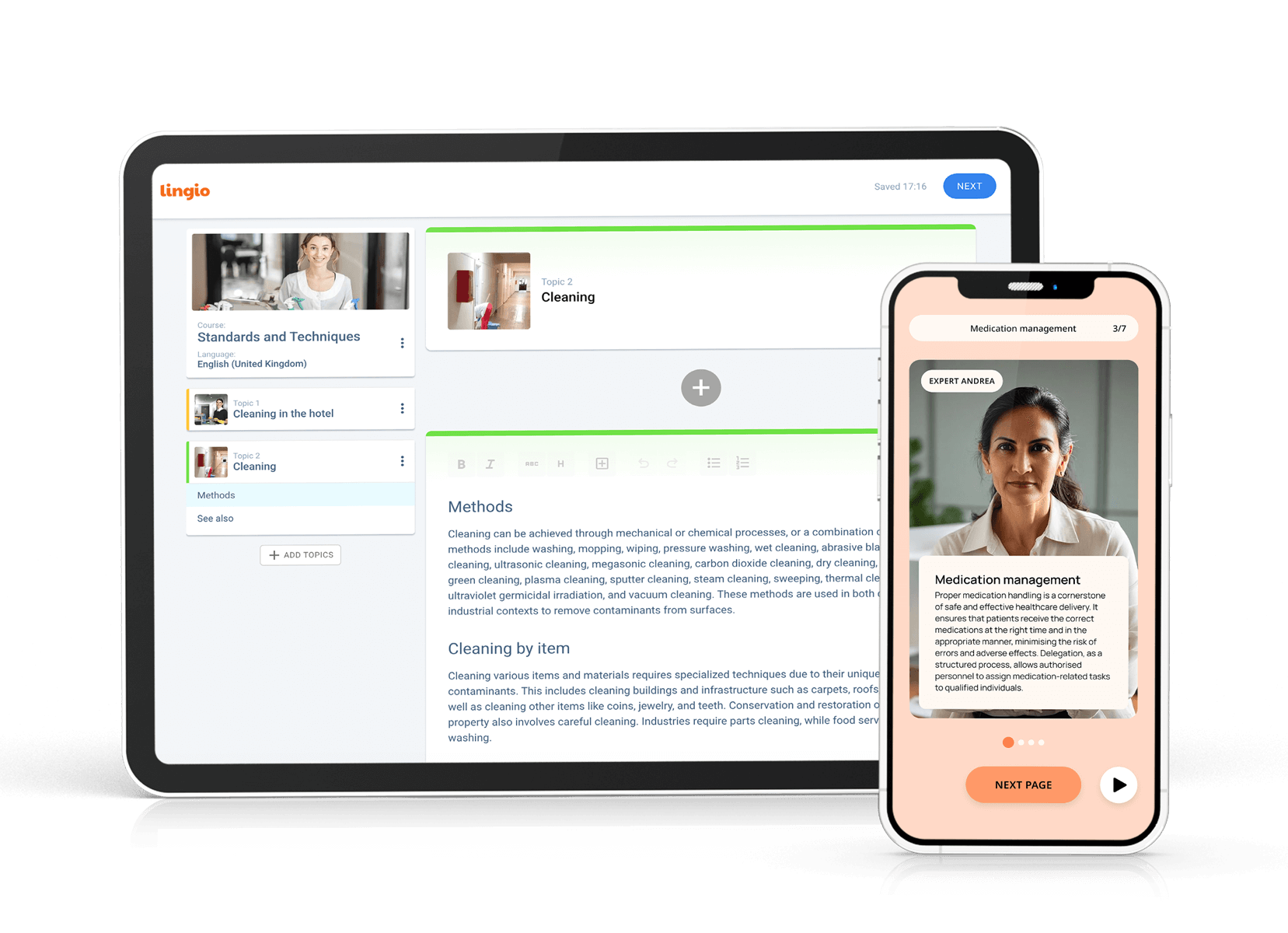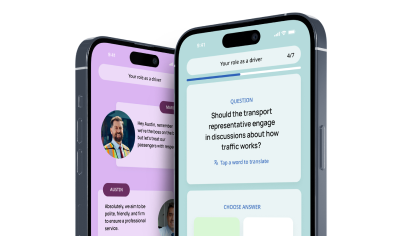The front desk is often the first point of contact for visitors and customers, making it crucial for front desk employees to possess proper etiquette. A well-trained and polite front desk staff can leave a lasting impression on customers and contribute to a business's overall success. This article will explore the importance of front desk etiquette and provide 45 manners your employees can develop to enhance their professional interactions.
Importance of Front Desk Etiquette
Front desk etiquette plays a vital role in shaping a positive image of your company. When front desk employees exemplify good manners and professionalism, it creates an atmosphere of trust and competence. Customers feel valued and respected, which leads to increased customer satisfaction and loyalty. Additionally, proper front desk etiquette sets the tone for a productive and harmonious work environment, improving employee morale and teamwork.
Front desk etiquette is not just about politeness; it also encompasses practical communication skills. A well-trained front desk staff can handle various situations tactfully and diplomatically, ensuring that issues or concerns are addressed promptly and efficiently. This level of professionalism not only enhances the customer experience but also reflects positively on the company's reputation.
Section 1. Greeting and communication skills:
1. Keep warm and friendly greetings
Effective communication starts with a warm and friendly greeting. Front desk employees should greet visitors and customers with a genuine smile and make them feel welcome. They should use polite and professional language, maintaining a positive tone throughout the interaction. Active listening skills are also essential, as they show attentiveness and understanding of the customer's needs.
2. Master telephone etiquette
Front desk employees should master telephone etiquette and answer calls promptly and professionally. They should speak clearly and provide accurate information while using proper office phone etiquette.
3. Handle difficult situations with tact
Another crucial aspect of communication is handling difficult situations and angry customers tactfully and patiently. Front desk employees should remain calm, empathise with the caller or customer's concerns, and provide appropriate solutions or escalate the issue to a supervisor when necessary.
4. Mind your body language.
In addition to verbal communication skills, non-verbal communication plays a significant role in front desk etiquette. Body language, such as maintaining eye contact, open posture, and friendly gestures, can enhance the front desk team overall communication experience and make visitors feel more comfortable and valued.
5. Improve the product knowledge
Front desk employees must also be well-versed in the company's products and services to provide accurate information to customers. Product knowledge instils customer confidence and helps upsell or cross-sell opportunities, thereby benefiting the business.
Section 2. Appearance and personal hygiene
6. Keep a professional appearance for first impressions
First impressions are significant and front desk employees should maintain a professional appearance. This includes dressing appropriately per the company's dress code and grooming oneself well. Neat attire conveys professionalism and attention to detail.
7. Pay attention to personal hygiene and self-care
Personal hygiene is essential, reflecting an individual's overall cleanliness and self-care. Front desk employees should ensure they are well-groomed, with clean hair, nails, and fresh breath.
8. Keep your workplace organised
Maintaining a clutter-free and organised workspace demonstrates professionalism and efficiency. It conveys to customers that their needs will be handled promptly and accurately.
9. Consider small details in your overall look
Regarding personal appearance, front desk employees should pay attention to small details that can make a big difference. This includes ensuring that their shoes are polished, their clothes are ironed, and their accessories are tasteful and appropriate for a professional setting. Front desk staff can exude confidence and competence by paying attention to these finer points.
10. Manage body odour and skin care
Personal hygiene goes beyond physical cleanliness and encompasses factors such as body odour management and skin care. Front desk employees should be mindful of using appropriate personal care products to maintain a fresh and pleasant scent throughout the day, ensuring a comfortable environment for themselves and their customers.
Section 3. Dealing with challenges
Challenges are a part of any job, and front desk employees must be equipped to handle them effectively. They should remain composed and professional, regardless of the situation. This includes dealing with complex or demanding customers, resolving conflicts, and managing stressful situations.
11. Stay proactive in your communication with customers
Front desk employees should strive to provide prompt and accurate assistance to customers, even when faced with limited resources or time constraints. They should stay proactive and resourceful, seeking solutions and alternatives whenever possible.
12. Practice empathy when talking to clients
Empathy is another crucial aspect when dealing with challenges. Front desk employees should put themselves in the customer's shoes and show understanding and compassion towards their concerns. This fosters a positive customer experience and helps build long-lasting relationships.
13. Keep your communication clear and compelling
Excellent communication skills are essential for front desk employees. Clear and effective communication can help diffuse tense situations and ensure that customers feel heard and valued. Active listening is a key component of good communication, as it allows employees to fully understand the customer's needs and concerns.
14. Stay positive
Maintaining a positive attitude can significantly impact how challenges are perceived and resolved. A smile, a friendly tone, and a willingness to help can go a long way in turning a difficult situation into a positive interaction. Front desk employees should always strive to remain professional and courteous, even in adversity.
Section 4. General manners and workplace etiquette
15. Remain polite
Politeness and professionalism should be the cornerstones of front desk etiquette tips and manners. Front desk employees should always strive to be courteous and helpful, treating everyone with respect and dignity.
16. Always arrive on time
Being punctual and reliable is also essential. Front desk employees should arrive on time for work, follow the designated break schedules, and complete their tasks diligently. They should demonstrate a strong work ethic and take ownership of their responsibilities.
17. Keep confidential information a top secret
Maintaining confidentiality is crucial in a front desk role. Front desk employees handle sensitive information, and they should respect the privacy of customers and colleagues. They should avoid discussing confidential matters in public spaces and handle documents and data securely.
18. Listen actively, hear wisely
Front desk employees should possess excellent communication skills. They should be able to listen actively to customers' needs and concerns and provide clear and concise information. Effective communication is critical to resolving issues efficiently and ensuring customer satisfaction.
19. Maintain a friendly attitude when greeting clients
In addition to communication skills, a friendly and welcoming attitude is important for front desk employees. Greeting visitors with a smile and cheerful demeanour can create a warm and inviting atmosphere, making customers feel valued and appreciated.
Section 5. Technology and administrative duties
Today, front desk employees are often responsible for managing various technological tools and systems. They should stay updated with the latest software and hardware to ensure they can efficiently handle administrative duties.
20. Master your computer literacy skills
Displaying computer literacy is vital, as front desk employees often need to use email, word processing, and other software. They should strive to improve their technical skills and seek assistance when needed.
21. Keep your records in the correct order
Front desk employees should prioritise organisation in their administrative duties. This includes maintaining accurate records, filing documents appropriately, and managing appointment schedules efficiently. They should also promptly respond to emails, personal phone calls and inquiries, showcasing promptness and attention to detail.
22. Adapt quickly to technological challenges
Front-desk employees must be adept at troubleshooting common IT issues in technology and administrative tasks. Troubleshooting basic technical problems can save time and prevent disruptions in the office environment's workflow.
23. Keep up with the times regarding data security requirements
Front desk staff must stay informed about data protection regulations and best practices. Safeguarding sensitive information and ensuring compliance with data privacy laws are paramount responsibilities for receptionists that contribute to maintaining the trust and confidentiality of clients and visitors.
Section 6. Other crucial front desk etiquette manners
24. Master your small talk skills
You will always meet new people, so making an excellent connection before you get to business is very important. Stay interested in different topics to keep the conversation on main lifestyle topics going smoothly.
25. Stay composed under pressure
Handle all tasks and interactions with professionalism, regardless of stress levels.
26. Anticipate guest needs
Look for cues and clues to address guest needs before they have to ask.
27. Follow-up on requests
Ensure all guest requests are completed to their satisfaction with timely follow-ups.
28. Offer local recommendations
Provide guests with insightful recommendations on dining and entertainment.
29. Engage guests in light conversation
Make guests feel at home with friendly and appropriate small talk.
30. Invite feedback actively
Encourage guests to share their experiences and suggestions for improvements.
31. Use professional language
Communicate with a clear, professional tone to reflect your competence.
32. Handle telephone bookings competently
Manage telephone bookings with precision to avoid any booking errors.
33. Develop conflict resolution skills
Learn techniques to resolve disputes smoothly and maintain guest satisfaction.
34. Learn key phrases in multiple languages
Enhance communication by learning words in the most common languages among your guests.
35. Tailor guest interactions
Customise your approach based on guest history and preferences for a personalised experience.
36. Verify guest information securely
Ensure all check-ins are conducted with thorough verification processes.
37. Monitor security systems effectively
Keep an eye on security feeds and manage surveillance responsibly.
38. Inform guests of safety features
Make sure guests are aware of safety features and emergency exits upon arrival.
39. Handle lost items responsibly
Carefully manage lost and found items, returning them to their rightful owners.
40. Be vigilant about guests’ comfort
Constantly monitor the environment to ensure that all guests are comfortable and that their surroundings meet the expected standards of comfort and cleanliness.
41. Promote a proactive problem-solving attitude
Train to respond to issues and proactively identify potential problems before they affect guests, ensuring swift solutions.
42. Maintain discretion at all times
The front desk must maintain discretion in all communications and actions to protect the privacy and confidentiality of guest interactions.
43. Showcase flexibility in guest service
Demonstrate the ability to adapt services and responses to meet diverse guest needs and situations, enhancing personalisation and satisfaction.
44. Enhance team coordination
Foster a collaborative environment among front desk staff and other departments to streamline guest service and ensure that all hotel parts operate harmoniously for the guest's benefit.
45. Constantly improve your front desk etiquette
Work to regularly improve your communication skills with professional training and upskilling programs.
Monitoring and evaluating front desk etiquette performance
Regular evaluation and tracking of front desk etiquette performance are necessary to ensure continued excellence. Supervisors should provide feedback and guidance to the front office receptionist front desk employees, identifying areas of improvement and recognising their accomplishments.
Consider implementing a system where customers can provide feedback on their experiences with the front desk staff. This feedback can provide valuable insight and help identify any pattern of behaviour that may need attention.
Moreover, organisations must establish clear and concise front desk etiquette guidelines to ensure consistency in customer service delivery. These guidelines should encompass a range of scenarios, from handling demanding customers with tact and professionalism to maintaining a welcoming and efficient check-in process.
Additionally, regular training sessions and workshops can be organised to refresh front desk staff on best practices for etiquette and address any emerging challenges in customer interactions. By investing in continuous training, businesses can empower their employees to handle diverse situations confidently and uphold their reputation for exceptional service.
Train your front desk staff on proper etiquette with Lingio
Investing in training programs to develop front desk etiquette skills is worthwhile. Lingio, a leading provider of professional development courses, offers comprehensive training modules designed specifically for front-desk employees. These courses cover various topics, including communication skills, problem-solving, and customer service.
Front desk staff play a crucial role in shaping a business's first impression. They are often the first point of contact for customers and visitors, making it essential for them to possess excellent communication skills and a professional demeanour. Powered by AI, Lingio's training programmes focus on theoretical knowledge and provide real-life scenarios and case studies to help employees apply their learning in practical situations. Learn more about Lingio and book your demo today.

FAQs
1. How often should front desk staff undergo etiquette training?
Regular training sessions or refreshers are beneficial to reinforce front desk and office etiquette tips. Consider scheduling training at least once a year or during significant changes in company policies or procedures.
2. Can front desk etiquette training benefit other employees?
Yes, front desk etiquette training can positively impact the entire organisation. It sets a professionalism and customer service standard that can inspire other employees to enhance their etiquette skills.
3. How long does it take to develop proper front desk etiquette?
Developing a proper front desk manner is an ongoing process. While some manners can be learned and practised relatively quickly, it takes time and experience to master all the differences and art of professional interaction fully. Continued training, feedback, and self-reflection are vital to making continual progress.


Table of contents
Intro
Importance of Front Desk Etiquette
Section 1. Greeting and communication skills:
Section 2. Appearance and Personal Hygiene
Section 3. Dealing with challenges
Section 4. General manners and workplace etiquette
Section 5. Technology and Administrative Duties
Section 6. Other crucial front desk etiquette manners
Monitoring and evaluating front desk etiquette performance
Train your front desk staff on proper etiquette with Lingio
FAQs

